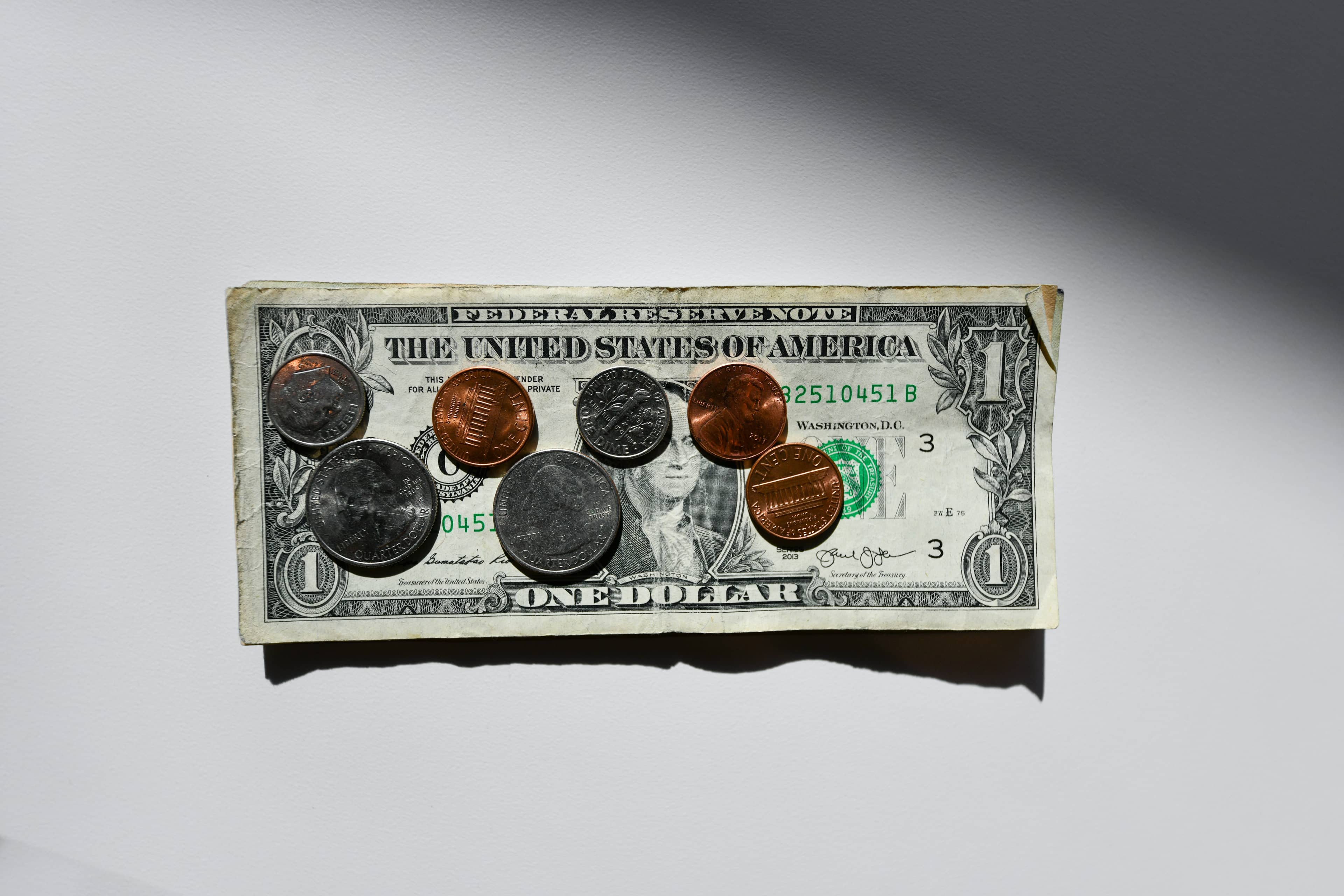Ever found yourself clicking "buy now" on something you saw scrolling through Instagram at 2 AM? Or walking into Target for shampoo and somehow leaving with $150 worth of stuff you "absolutely needed"? You're not alone. According to research, humans are evolutionarily "predisposed to try to acquire more and more stuff," and our modern world has turned this ancient survival mechanism into a financial trap.
The psychology behind unnecessary spending is fascinating, complex, and surprisingly predictable. Understanding why we buy things we don't need isn't just academic curiosity—it's the key to taking back control of your finances and breaking free from the cycle of impulse purchases that leave you wondering where your paycheck went.
The Science Behind Your Shopping Impulses
Your Brain on Shopping
When you spot an unexpected sale or find that perfect item you've been wanting, your brain literally lights up. The neuroscience is clear: shopping triggers a dopamine release similar to what our ancestors experienced when they discovered unexpected food sources. This isn't just a pleasant feeling—it's your brain's reward system in overdrive.
The dopamine hit is especially powerful when purchases are unexpected or feel like "wins." That flash sale notification or limited-time offer doesn't just create urgency—it promises your brain a chemical reward. And just like with other reward-driven behaviors, this can become a cycle where you chase that next shopping high.
The Emotional Spending Trap
Most unnecessary purchases aren't really about the stuff—they're about feelings. We shop to:
- Boost our mood when we're stressed, bored, or sad (hello, retail therapy!)
- Signal our identity and show the world who we are or want to be
- Feel in control when other areas of life feel chaotic
- Keep up socially and avoid feeling left out
These emotional triggers are completely normal, but they're also expensive. When you buy that designer coffee maker, you're not just purchasing an appliance—you're buying into an identity and trying to fill an emotional need.
The Modern Amplifiers of Impulse Spending
Social Media and Targeted Advertising
Your phone knows you better than you know yourself, and retailers are using that knowledge against your wallet. Social media platforms and targeted advertising have weaponized our psychological triggers, creating a perfect storm for impulse buying.
Every time you like, share, or even pause on a post, algorithms are building a profile of your desires and insecurities. Then they serve up precisely the right product at exactly the moment you're most vulnerable to spending. That targeted ad showing up right after a stressful day at work? That's not coincidence—it's calculated psychology.
The Always-On Shopping Culture
Unlike previous generations who had to physically go to stores during business hours, we now carry entire shopping malls in our pockets. This 24/7 access to purchasing power means our impulse control is constantly being tested. There's no natural cooling-off period, no time to second-guess a purchase while driving to the store.
The convenience that makes online shopping so appealing is the same thing that makes it financially dangerous. One-click purchasing, saved payment methods, and same-day delivery all remove the friction that used to give us time to think twice about unnecessary purchases.
The Hidden Costs of Emotional Spending
Beyond the Price Tag
When you buy things you don't need, the real cost isn't just the money leaving your account—it's the compound effect on your financial future. Every unnecessary $50 purchase is $50 that could have been saved, invested, or used for something that truly matters to you.
There's also the psychological cost. Research shows a strong link between impulsive spending and buyer's remorse. That temporary dopamine high often crashes into regret, creating a cycle where people shop to feel better about previous shopping decisions.
The Identity Crisis
Using purchases to signal identity or status creates an expensive habit with diminishing returns. When your self-worth becomes tied to what you own, you're constantly chasing the next purchase to maintain that image. This "market-based symbol" approach to identity is not only costly—it's ultimately unsatisfying because there's always something newer, better, or more impressive to buy.
Breaking Free: Practical Strategies That Actually Work
Understand Your Triggers
The first step to changing any behavior is awareness. Start tracking not just what you buy, but why you buy it. Are you shopping when you're stressed? Bored? After scrolling social media? Identifying your personal triggers is crucial for developing effective countermeasures.
Keep a simple spending journal for a week. Note:
- What you bought
- Where you were
- How you were feeling
- What prompted the purchase
This isn't about judgment—it's about data. You can't fix patterns you can't see.
Create Intentional Friction
Since convenience enables impulse spending, intentionally add friction to your purchasing process:
- Remove saved payment information from shopping apps
- Unsubscribe from promotional emails
- Implement a 24-48 hour waiting period for non-essential purchases
- Use shopping lists and stick to them religiously
The Power of Mindful Money Management
This is where tools like budgeting apps become game-changers. I've been testing Monee, a budget and expense tracker that takes a refreshingly simple approach to money management. What impressed me most was how it makes you think before you spend.
Unlike some budgeting apps that feel like accounting software, Monee focuses on quick, easy entry—you add an amount, pick a category, and add an optional note. It's done in seconds, which means you're more likely to actually use it consistently. The real power comes from the monthly summaries that show you exactly where your money goes.
What sets Monee apart is its privacy-first approach. There's no registration required, no ads, and no tracking. Your financial data stays completely private, which addresses one of the biggest concerns people have about money management apps. Plus, it's completely free—no subscriptions or in-app purchases trying to upsell you.
The app's strength lies in its simplicity and the psychological impact of awareness. When you have to categorize and note every purchase, you naturally become more mindful about spending. It's like having a gentle accountability partner in your pocket.
The "Every Dollar Has a Job" Method
One of the most effective approaches to curbing impulse spending is giving every dollar a purpose before you spend it. This proactive budgeting method forces you to be intentional with your money rather than reactive.
When you allocate money to specific categories—rent, groceries, entertainment, savings—you create natural boundaries. That impulse purchase isn't just $30 you're spending; it's $30 coming out of your vacation fund or emergency savings.
Taking Control: Your Next Steps
Start Small, Think Big
You don't need to overhaul your entire financial life overnight. Start with one small change:
- Track your spending for one week
- Implement a 24-hour waiting period for purchases over $25
- Unsubscribe from three promotional email lists
- Set up a simple budget using a tool like Monee
Focus on Values, Not Restrictions
Instead of focusing on what you can't buy, focus on what you want to achieve. Whether it's saving for a house, building an emergency fund, or planning an amazing vacation, having clear financial goals makes it easier to say no to unnecessary purchases.
When you're tempted by an impulse buy, ask yourself: "Is this purchase bringing me closer to or further from my goals?"
The Bottom Line
Understanding the psychology of spending isn't about never buying anything fun or nice for yourself. It's about making conscious choices instead of falling victim to marketing manipulation and emotional triggers. When you understand why you spend, you can decide if that spending aligns with your values and goals.
The good news? Once you recognize these patterns, you can't unsee them. That targeted ad loses its power when you understand the psychology behind it. That impulse purchase becomes easier to resist when you recognize the emotional trigger.
Your money should work for your dreams, not against them. By understanding the psychology of spending and implementing simple tools to increase awareness, you can break free from the cycle of buying things you don't need and start building the financial future you actually want.
What spending triggers have you noticed in your own life? Have you found any strategies that help you pause before purchasing?
Sources:



